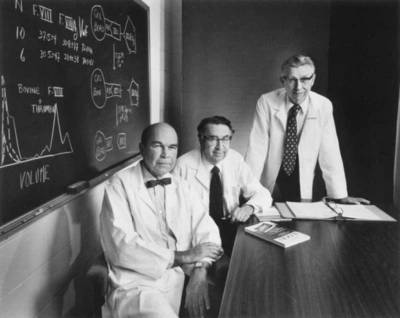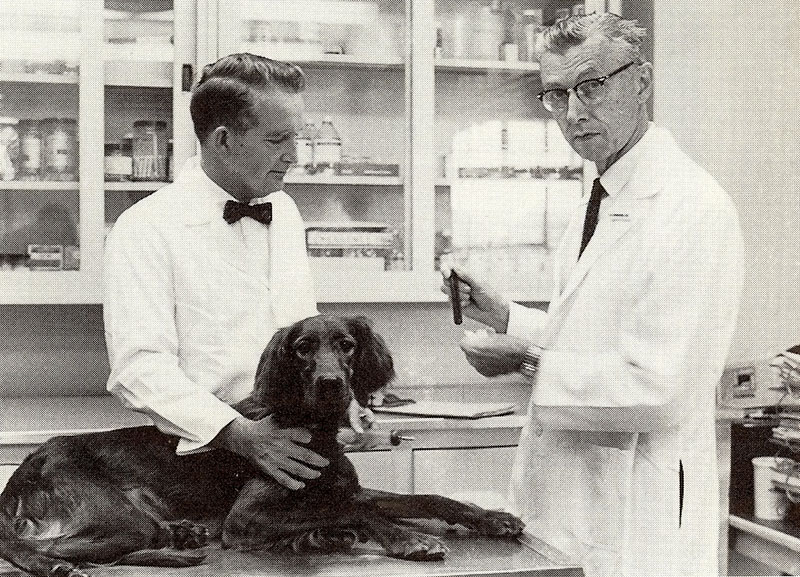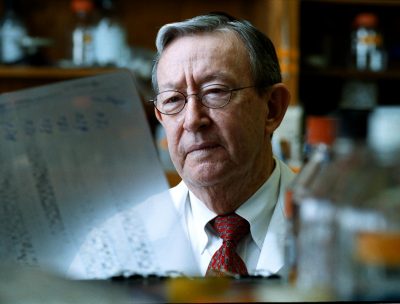History and Mission
The UNC Hemophilia and Thrombosis Center is committed to enhancing the health and quality of life of people with bleeding and clotting disorders, and their families, through comprehensive health care services, education and research.

Over the past seventy years, the department has made numerous contributions to the understanding and treatment of hemophilia and thrombosis. The Center has its roots in the 1940s when Drs Brinkhous, Wagner, Landell, Graham and others began their pioneering investigations in hemophilia. In 1947, Kenneth Brinkhous (right) initiated research on canine carriers of hemophilia. Focusing on research with dogs, he founded the Francis Owen Blood Research Laboratory which has contributed to advancements in testing, treatments, and knowledge of hemophilia. For more information see the Blood, Sweat, and Tears article.

Under the successive leadership of Harold Roberts, Phil Blatt, and Campbell McMillan, the center continued to grow in the 1970s to 1990s. The Center is currently recognized as an International Hemophilia Training Center by the World Federation of Hemophilia. It is one of 16 Centers funded by the National Heart, Lung, and Blood Institute as part of a Hemostasis-Transfusion Medicine Network. It is one of 5 thrombosis centers piloted by the Centers for Disease Control to find out how to best provide treatment and preventative care to people with thrombosis or thrombophilia.
In 2003, Dr. Harold R. Roberts delivered the Norma Berryhill Distinguished Lecture, which he titled “The Observations of a Former Student: A Half Century of Constancy and Change.” Click on the link to obtain access to the lecture.
